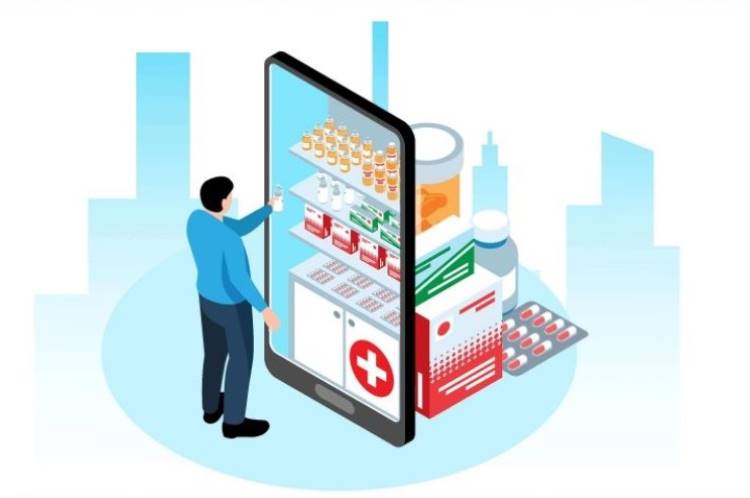The rapid growth of online pharmacies has transformed the pharmaceutical industry, offering both opportunities and challenges. As digital platforms proliferate, concerns about safety, legality, and ethics have intensified. Recent reports, including the US Trade Representative’s annual ‘Notorious Markets’ list and CRISIL’s analysis of India’s burgeoning e-pharmacy sector, reveal a complex web of advantages and risks. These findings highlight the urgent need for robust regulation and consumer awareness to ensure that online pharmacies contribute positively to global healthcare systems.
Online pharmacies provide undeniable benefits to consumers. They offer convenience, accessibility, and often cost savings. These platforms are particularly beneficial for seniors, individuals with disabilities, and those living in remote areas, who might face challenges in accessing traditional brick-and-mortar pharmacies.
In India, the online pharmacy market is projected to grow at an annual rate of 13.33% between 2024 and 2029, with user penetration expected to rise significantly. The industry’s potential for expansion, driven by technological advancements and changing consumer behaviour, presents a unique opportunity to improve healthcare access and efficiency.
READ I Gender binary policy: A step backward in the fight for equality
Dark side of the e-pharmacy boom
However, the legal landscape governing online pharmacies is fraught with challenges. According to the USTR report, an alarming 96% of online pharmacies worldwide operate illegally. Many platforms bypass regulatory oversight, selling prescription medications without proper authorisation or prescriptions. Counterfeit and substandard drugs are a pervasive issue, posing significant health risks to consumers.
For instance, a network of illegal drug sellers distributed counterfeit opioids disguised as legitimate prescription drugs, leading to multiple fatalities. The absence of proper licensing and safety measures further undermines consumer trust and regulatory compliance. Moreover, the transnational nature of these platforms complicates enforcement, as ingredients like fentanyl are often sourced from countries with lax regulations, such as China.
Ethical dilemmas in digital healthcare space
The ethical challenges posed by online pharmacies are equally significant. The ease of obtaining medications without a physician’s consultation raises serious concerns about patient safety. The National Association of Boards of Pharmacy (NABP) has highlighted the risks of “cyberspace consultations,” which bypass essential medical evaluations, potentially leading to adverse health outcomes.
The unchecked sale of antibiotics is particularly concerning, as it contributes to antimicrobial resistance (AMR), a global health crisis. The World Health Organisation (WHO) has classified certain antibiotics as “Watch” and “Reserve” drugs, underscoring the dangers of self-medication facilitated by online platforms. Furthermore, the privacy of patients’ health data is at risk on dubious websites, with inadequate protections against breaches of confidentiality.
Online pharmacies — growth amid challenges
In India, the e-pharmacy sector is poised for significant growth, yet it faces several challenges. While revenue growth is promising, the sector continues to grapple with substantial operational losses due to high initial investments in technology, supply chains, and marketing. A fragmented market exacerbates these issues, leading to high customer acquisition costs and intense competition.
Despite these hurdles, players in the Indian e-pharmacy market are adopting strategies to improve profitability. They are diversifying into high-margin segments like wellness products and medical equipment and moving away from aggressive discounting to reduce operating costs. However, the lack of robust regulations and oversight remains a critical concern, leaving the door open for counterfeit and substandard medicines to enter the market.
A blueprint for safer digital sales
To harness the potential of online pharmacies while mitigating their risks, a comprehensive, multi-stakeholder approach is essential. Governments must strengthen regulatory frameworks and enforce robust licensing systems. In India, integrating e-pharmacies into the existing drug control framework can provide a pathway for legitimate operations.
Internationally, harmonised legal frameworks and verification systems are crucial for addressing the transnational nature of illegal activities. Technological innovations, such as Verified Internet Pharmacy Practice Sites (VIPPS), can enhance consumer trust by certifying compliant platforms. Consumer education is equally important; raising awareness about the dangers of unverified online pharmacies and encouraging the use of legitimate platforms is vital. Public health campaigns can also address the growing threat of AMR by promoting judicious use of antibiotics.
The digital transformation of the pharmaceutical supply chain has created new opportunities for improving healthcare delivery, but it also demands vigilance. The unchecked growth of illegal online pharmacies poses a significant threat to public health, undermining trust in the healthcare system and endangering lives.
Policymakers, regulators, and industry stakeholders must act decisively to create a digital pharmaceutical marketplace that prioritises public health and consumer safety over profit motives. By balancing innovation with stringent regulation, online pharmacies can fulfil their potential to enhance healthcare access while maintaining the highest standards of safety and ethics.
Without swift and coordinated action, the risks associated with this burgeoning sector could overshadow its benefits, jeopardising the health and well-being of millions worldwide. The time to act is now, as the global healthcare landscape pivots toward a future where technology and ethics must go hand in hand.

